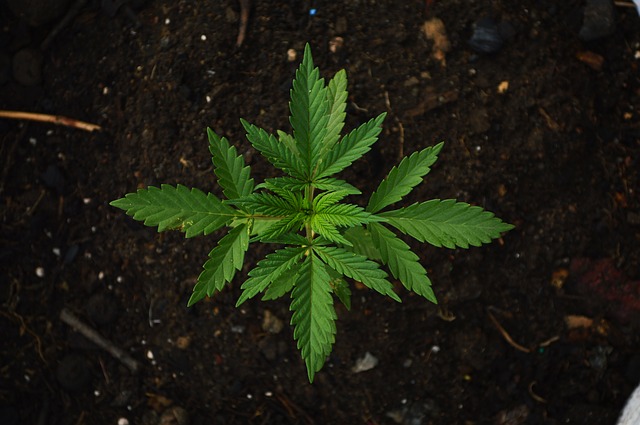These Canadian Cities Will Continue to Ban Cannabis Even After Legalization
Cannabis legalization is almost upon us! But all is not smooth sailing. There are some cities across Canada that have decided to leap off the bandwagon when it comes to accessibility just shy of October 17, 2018.
The upcoming nationwide legalization of marijuana has left Canada in a state of breathless anticipation. However, cannabis enthusiasts may find themselves disappointed as not all cities are falling in line with Bill C-45 when it comes to whether or not it will be available. With all of these diametric changes in the drug laws in Canada, stay alert. It’s best to contact an experienced criminal defense lawyer in Toronto as early as possible if you require legal intervention for drug related offenses.
Scattershot Cannabis Regulations May Brew Up a Storm
While the federal government is intent on regulating the production of cannabis, it has adopted a flexible approach with how it is to be dispensed. Each province may choose its preferred method, with Quebec having decided to use its provincial liquor stores to sell it while Alberta and Manitoba having decided to allow privately-run businesses to sell it.
Ontario and British Columbia have gone one step further and have decided to allow local communities to decide whether to allow cannabis to be sold within their municipal boundaries. This has caused critics to argue that it is unwise to allow cities to eschew federal legislations because certain communities may relegate cannabis sales back into illegal channels which was one of the primary reasons why cannabis was legalized in the first place.
The legalization is still the subject of speculation and derision. Several studies suggest that legalization will not do much to weed out organized crime as far as production, distribution, and sale are concerned. What’s more, it will cost millions of dollars annually to train frontline officers and invest in roadside testing equipment so as to curb driving under the influence.
Cities That Have Shrugged Off Cannabis Sales
Several jurisdictions across the country have chosen to go against the grain and restrict weed shops altogether. In Ontario, Richmond Hill and Markham have chosen to do so as have a number of cities in B.C. (i.e. North Vancouver, West Vancouver, Richmond, Abbotsford, Whistler, Pitt Meadows and Tofino). If you reside in any of these areas, you will either have to travel to pro-cannabis municipalities or use a mail order system to purchase the cannabis.
Brick-and-Mortar Stores in Ontario to be Up and Running by Early 2019
Initially, Ontario identified 14 municipalities that would run LCBO-operated recreational cannabis outlets. Vaughan and Richmond Hill were the first jurisdictions to be selected. That was until Richmond Hill passed a unanimous motion informing the provincial government that their unwillingness to host a retail cannabis store in their community. With the recent election of Premier Doug Ford’s government in Ontario, the rules have now changed and it is anticipated that cannabis will be made available for purchase through private businesses. However, Ontario still plans to open the first wave of LCBO-type stores by April 2019, with a further 80 stand-alone stores by July 2019 and 150 by 2020.
Legal Ramifications of Breaking Cannabis Laws
Cannabis possession laws remain as concrete as ever. Adults, aged 18 and above, will be restricted from possessing over 30 grams of dried cannabis at a time. Each province is allowed to set its own minimum age limit. Failure to adhere to these provisions can result in criminal charges. Even more confusing is that whereas Alberta and Quebec have set the minimum age at 18, all other provinces have settled on 19 years as the legal minimum.
The law does allow you to share cannabis freely among acquaintances but you cannot sell it. Unlicensed retailers will run the risk of being charged with a fine of $5000 and face up to 14 years in prison.
Nine provinces have stipulated that you cannot grow more than four plants in your home and these should not be over one meter high. British Columbia has an added restriction: these plants cannot be grown in view of the public.
With Bill C-46, the impaired driving laws have received a slight adjustment. It is still illegal to operate or have care or control of a motor vehicle while impaired by alcohol or a drug but now if a driver has two but less than five nanograms of THC (the primary ingredient in marijuana) in their blood, they will criminal charges similar to alcohol-related offences. Exceeding five nanograms can result in jail time of up to ten years along with a substantial fine.
Furthermore, each province has been given the freedom to set their own legal repercussions for driving when high. Quebec has adopted a zero-tolerance policy and will suspend drivers for 90 days if even a trace of cannabis is detected in their blood. Alberta and Ontario will invoke a zero-tolerance policy only for new drivers.
Convicted of a Drug Offense? Timely Representation is Crucial!
Drug possession laws in Canada will soon receive a complete overhaul. John Erickson is a senior criminal lawyer and Ex-Crown Prosecutor with nearly two decades of experience defending individuals convicted of drug offences. Call (416) 363 3612 today for affordable and reliable legal representation.



Comments are closed.